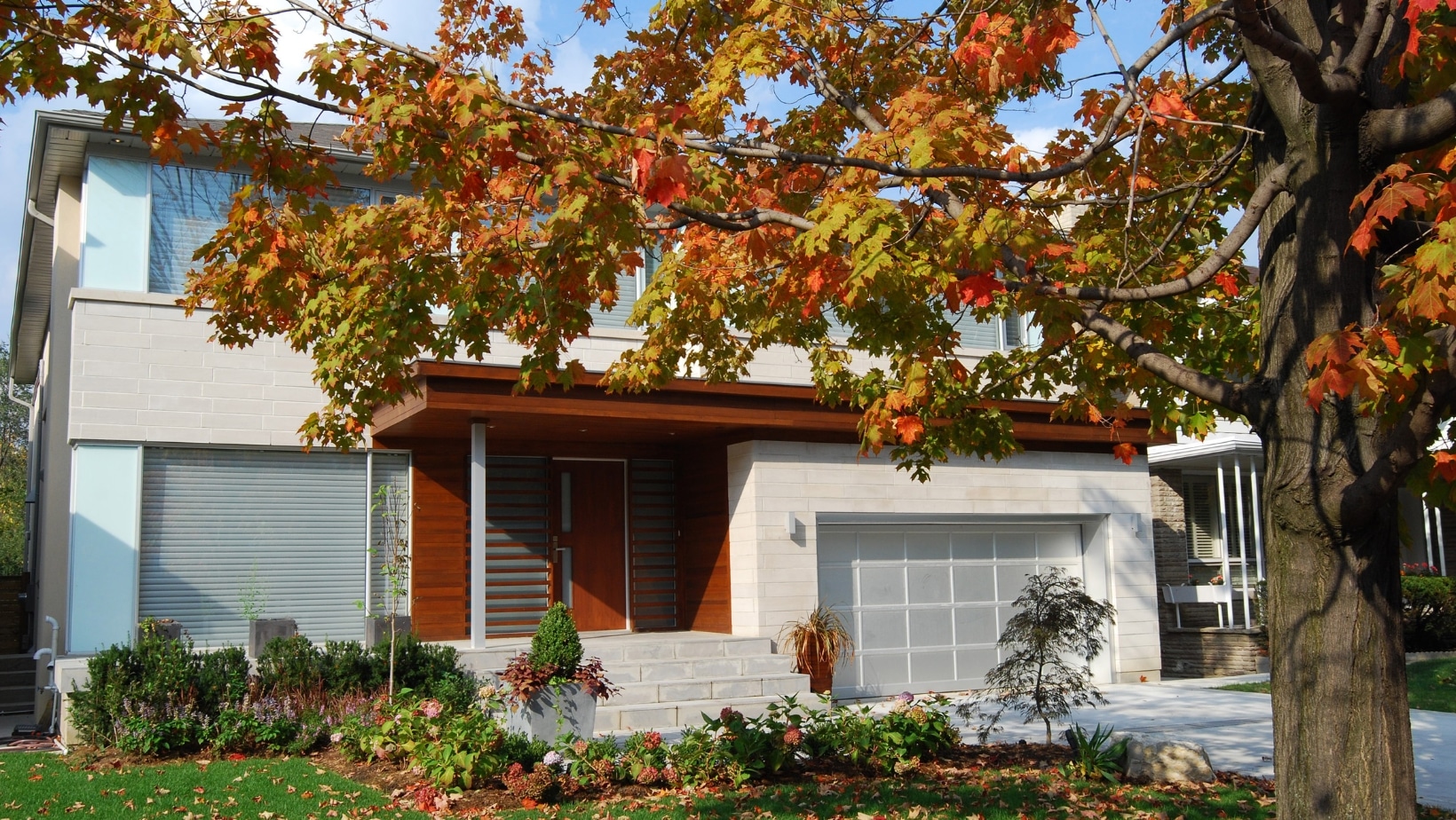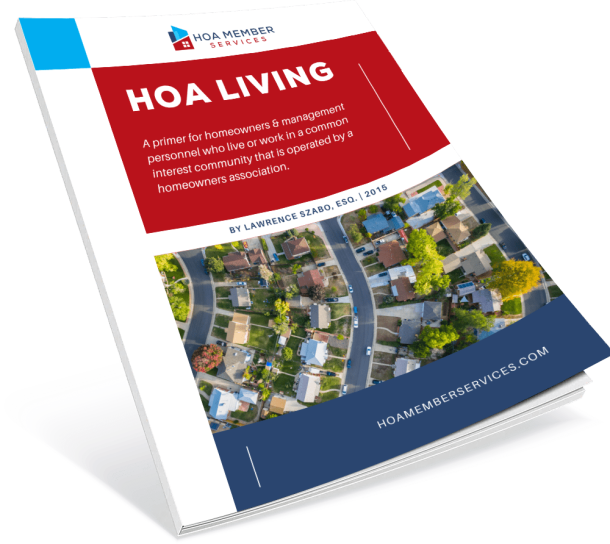Want to live in a picture-perfect neighborhood but set back by the fact that it is a part of a homeowners association? The idea of strict rules and shared responsibilities can either sound like a dream or a nightmare, depending on your perspective.
So, here’s the burning question: Can you refuse to join a homeowners association?
The short answer is that it depends. Yes, you can refuse to join a homeowners association if you buy a home in a community without a mandatory HOA. However, if the community has a mandatory HOA, you must join as part of the purchase agreement.
In this article, we’ll dive into the mechanics of HOAs — how they operate, what your legal obligations are, and whether you have any options to opt out. This guide will help both prospective and current homeowners navigate the world of HOAs with clarity and confidence.

What is a Homeowners Association (HOA)?
A Homeowners Association, or HOA, is basically a group that manages and oversees a neighborhood or community. Think of it as the “neighborhood boss” that ensures the area stays clean, consistent, and appealing.
HOAs are typically created by developers when they build the neighborhoods. They set them up to maintain certain standards for the new development. They want to make sure it looks good, property values stay high, and common areas like parks or pools are properly maintained.
What Does an HOA Actually Do?
For starters, they create and enforce rules. These rules can cover everything from how often you need to mow your lawn to what color you can paint your front door.
They might dictate what kinds of fences are allowed, whether you can park a boat in your driveway, or how your holiday decorations can look. In some cases, they’ll even manage shared spaces like community pools, playgrounds, and clubhouses.
Essentially, HOAs are about keeping things in check so that one neighbor’s messy yard doesn’t drag down the whole block.
But do you have to join an HOA when buying a house? Well, that depends on whether the HOA is mandatory or voluntary. Understanding the difference is key if you’re wondering whether you can say no to joining one — and what that means for your homeownership experience.
Mandatory HOA vs. Voluntary HOA
1. Mandatory HOA
In neighborhoods with mandatory homeowners associations, there’s no way around it. If you buy a home in that community, you automatically become a member of the HOA.
You’re required to follow its rules and pay any dues or fees, which could go toward things like maintaining common areas or funding neighborhood events. Skipping out on these isn’t an option in mandatory HOAs — it’s part of your home purchase agreement.
2. Voluntary HOA
On the flip side, voluntary HOAs give you more flexibility. In these neighborhoods, you can choose whether or not to join.
If you opt in, you’ll pay dues and enjoy the benefits (like access to shared amenities or voting on community decisions), but if you’d rather not participate, you’re free to decline. Just keep in mind that not joining might mean you have less say in how the neighborhood is run.

When Joining an HOA is Mandatory
In certain situations, joining an HOA isn’t just recommended — it’s a requirement you can’t really get out of. Here’s when you might find yourself in that situation:
- Buying a property in a development with an existing HOA: If you’re purchasing a home in a neighborhood that already has an HOA in place, you’re automatically bound to join. This isn’t something you can opt out of; it’s typically part of the closing process, and you’re officially enrolled the moment you sign those papers. The HOA was established long before you showed up, and as a new homeowner, you’re stepping into a set of rules that apply to everyone who buys there.
- Legal obligations tied to HOA communities: There are certain neighborhoods that are specifically set up as HOA communities, meaning that the HOA isn’t just a casual association; it’s written into the legal framework of the development. Buying a home in these areas comes with a set of conditions, and membership in the HOA is one of them. In these cases, it’s non-negotiable because purchasing property there legally binds you to the HOA’s rules and requirements.
Now, there’s a common concern regarding this among people: how are mandatory HOAs even legal? After all, it feels like being forced into an association you didn’t choose to join.
Let’s clear up the fog around that.
Why are Mandatory HOAs Legal?
It may seem strange, but mandatory HOAs are perfectly legal because the conditions are part of the property’s deed. Essentially, you’re agreeing to follow the HOA’s rules when you buy the property.
Of course, this raises a concern for many: How is it fair that something as personal as where you live can come with such obligations? But from a legal standpoint, it’s simple — HOAs are considered a form of contract.
When you purchase a home in such a community, you’re entering into a contract, one that often can’t be avoided without steering clear of the community altogether. That contract includes HOA membership, and by signing the dotted line, you’re accepting their terms.
For better or worse, that’s the trade-off of living in a carefully managed community.
Can You Avoid an HOA Before You Buy?
Yes, it is absolutely possible. Here’s how to avoid an HOA neighborhood when buying a house:
1. Research Neighborhoods
Not every neighborhood is governed by an HOA. Many older neighborhoods or rural areas, for example, are more likely to be free of these associations. Take your time researching different areas. You can often find this information online through real estate listings or by working with a local real estate agent who’s familiar with the area.

2. Ask Questions
Once you find a house that catches your eye, don’t hesitate to ask upfront whether it’s part of an HOA. The seller or their agent is legally required to disclose this, so don’t be shy. No one wants surprises when they’re looking for their dream home.
3. Review Property Listings Carefully
Most real estate websites, like Zillow or Realtor.com, offer filters to help you narrow down your search. You can often filter listings by whether they are part of an HOA or not. This is a great time-saver, allowing you to focus only on homes that fit your preferences and avoid wasting time on properties that won’t meet your needs.
4. Read the Fine Print
Make sure to read through any property disclosure documents that are provided carefully. These documents should clearly state whether or not there’s an HOA. Don’t skim through them — it might seem tedious, but it could save you from buying into a neighborhood with rules you aren’t comfortable with.
5. Check with Local Authorities
Some cities and counties maintain public records of properties and their associated HOAs. It might take a little extra effort, but contacting the local planning or zoning office can give you peace of mind. They can confirm if the property you’re eyeing is tied to an HOA or not.
6. Consider Older, Established Neighborhoods
If you want to avoid an HOA, you might want to look for older neighborhoods. HOAs are more common in newer developments, which often have stricter regulations and standards for everything. On the other hand, homes in older, more established areas tend to be free of these associations.
7. Look for Non-Association Developments
If privacy and freedom to customize are priorities for you, seek out homes in developments that aren’t under an HOA. This is particularly true for rural properties, homes on larger lots, or single-family homes. Properties in these categories tend to be more independent and free from HOA regulations.
Can You Refuse to Join a Homeowners Association After Buying a Home in an HOA Community?
No, unfortunately, you can’t. Once you buy a home in a neighborhood with a Homeowners Association (HOA), you’re automatically part of it — you don’t get to pick and choose.
It’s not like signing up for a gym membership where you can just say, “Nah, I’ll pass.” If the house is in a community governed by an HOA, you’re in it whether you like it or not.
The HOA is there to enforce community standards, maintain property values, and keep the neighborhood looking its best. If people could easily opt out, the system wouldn’t work, and the whole point of the HOA would fall apart.
This is why it’s so important to check whether the home you’re interested in is part of an HOA before you buy it. Once you’ve signed all the paperwork, you’re agreeing to follow the HOA’s rules and regulations, which can be very specific.
Many people don’t realize how strict these rules can be until it’s too late, but it’s not something you can wiggle out of after the fact.
So, if you’re not into the idea of someone telling you what color you can paint your house or where you can park your car, you’ll want to know upfront. Once you’re in, refusing to join is not a realistic option if you’re set on living in that community.
What Happens if You Don’t Want to Follow HOA Rules?
So, let’s say you’re already living in a HOA community, but you’re not a fan of the rules. What happens if you decide you don’t want to follow them?
Well, violating HOA rules can come with a range of legal and financial consequences, and some of them can get pretty serious. Here’s what you might face:
- Fines: Most HOAs will issue a monetary penalty for violations, whether it’s for something small like leaving trash cans out too long or something bigger like an unapproved renovation. These fines can accumulate quickly if you don’t address the issue, turning a small problem into a costly one.
- Legal action: If you refuse to comply and the fines aren’t enough to get your attention, the HOA can escalate things. They can take you to court, and yes, this means legal fees and a whole lot of stress. No one wants a lawsuit on their hands over something as simple as landscaping choices, but it happens.
- Foreclosure: In extreme cases, things can get even worse. If you continue to ignore fines and legal fees build up, the HOA has the power to place a lien on your home. In extreme cases, they can even move to foreclose on your property. This is rare, but it’s possible, and yes, it’s as scary as it sounds. Imagine losing your home because of unpaid fines — it’s definitely a risk worth avoiding.

Rare Exceptions: Opting Out of an HOA
Now, there are a few rare cases where opting out might actually be possible. While most neighborhoods have mandatory HOAs that you can’t sidestep, some situations offer a little more wiggle room.
Here’s what you should know about the limited but real ways you might be able to refuse to join an HOA:
1. Going for Voluntary HOAs
As mentioned earlier, in some communities, the HOA is completely optional. What that means is you can choose whether or not you want to be a part of it.
You might still get some of the perks of living in the neighborhood, like access to amenities, but without the heavy hand of obligatory HOA fees or endless rules. You decide if it’s worth the fees and involvement, making it a much more flexible option.
For someone who values their independence and wants more control over their property while still being part of a community, a voluntary HOA could be a perfect fit.

2. Choosing a Community with a Disbanded HOA
Another option, though much less common, is finding a neighborhood where the HOA used to exist but has since disbanded. Yes, this can happen!
But disbanding an HOA isn’t easy — it often requires a lot of legal work, paperwork, and a majority agreement from the community. Plus, it can take time and might involve some serious challenges.
However, for buyers who find these disbanded communities, there’s the bonus of no association fees or oversight to worry about.
Keep in mind that a disbanded HOA can mean less community upkeep or fewer amenities, as the individual property owners are now responsible for things the HOA used to handle. So, it’s a trade-off that requires careful consideration.
What to Do if You Disagree with the Mandatory HOA?
While you can’t refuse to join one, there are plenty of constructive ways to voice your concerns and seek change if you find yourself at odds with a mandatory HOA.
- Review Governing Documents: Start by pulling out the HOA’s Covenants, Conditions, and Restrictions (CC&Rs) and other bylaws. Understanding these governing documents inside out will give you the power to challenge, or at least understand, what you’re up against.
- Communicate with the HOA Board: Often, we think of HOAs as faceless entities when, in reality, they’re just people — neighbors, even. Attend a meeting, speak up (respectfully), and explain your concerns. Share specific examples, and be prepared to listen, too. You might find a solution through conversation.
- Gather Support from Other Homeowners: You might not be the only one who feels a certain rule is unfair. Talk to your neighbors — if there’s strength in numbers, the board may be more likely to reconsider policies. A group of voices often carries more weight than one lone complaint.
- Propose Changes: If a rule rubs you the wrong way, suggest a better one! You don’t just have to complain — you can contribute. Propose an amendment or an alternative solution. Just follow the process outlined in the bylaws, and you might spark the change you want to see.
- Use the HOA’s Dispute Resolution Process: If discussions hit a wall, take a look at the HOA’s formal dispute resolution procedures. Mediation or arbitration might offer a path forward without the conflict escalating into a major battle.
- Consult Local Laws: HOAs can’t do whatever they want. Check your local or state laws to see if the HOA’s actions are even enforceable. There may be legal protections that back your stance.
- Run for the HOA Board: One of the most effective ways to challenge the rules is from within. If you’re serious about making changes, consider running for a spot on the board. As a board member, you’ll have a say in shaping the community’s future.
- Seek Legal Help: If the HOA isn’t budging and you believe their actions are unreasonable or unlawful, it might be time to consult a lawyer. Sometimes, knowing your legal rights can shift the conversation in your favor.
- Litigation as a Last Resort: If all else fails, you might consider legal action. But remember, lawsuits are costly and time-consuming. Only head down this road if you’ve exhausted every other option.

The Final Verdict
So, can you refuse to join a homeowners association? In most cases, the answer is no — you can’t opt out if your property is part of a mandatory HOA.
However, you can avoid this by simply choosing not to buy a home in a mandatory HOA community and going for disbanded or voluntary HOAs. The key takeaway? Do your homework before signing on the dotted line.
Thorough research before purchasing a home is your best defense against getting stuck with unwanted HOA responsibilities and surprises. But remember, while HOAs can sometimes feel restrictive, they are designed to maintain community standards, boost curb appeal, and protect property values.
Still unsure about your HOA obligations or need legal advice? Sign up for our membership and get unlimited access to an HOA attorney who can help you navigate your situation with confidence!

